Probiotics and How They Promote Gut Health

What are probiotics?
According to the World Health Organisation (WHO), probiotics are live microorganisms that, when administered in adequate amounts, confer a health benefit on the host.
Probiotics can be naturally found in our bodies. In fact, there are around 2,000 different types of bacteria floating around inside us. And here’s a fun fact: There are 10 times more probiotics found in your gut than cells in the body.
The gut and immunity
Did you know the gut and the immune system have a really close relationship? Whatever happens in the gut can powerfully influence the immune system. This is because around 80% of the body’s immune system resides in the gastrointestinal tract in the form of receptor cells. The goal is to have a healthy gut, with an ideal 85% of good bacteria and 15% other microbes populating it.
There are plenty of types of good bacteria present. Of them all, Lactobacillus and Bifidobacterium are the most common. Lactobacilli have 18 varied bacteria strains and can be found in the small intestine. Bifidobacteria have 8 strains and are present in the colon.
You have to keep in mind that your gut is the center of your overall health and well-being. So in order to ensure total health, we have to take care of our guts first. According to the great Hippocrates, “All diseases begin in the gut".
Bacteria in the gut
So how exactly does bacteria help with the gut? First, they make sure to properly balance the good and bad microorganisms in the gut. They also help with proper digestion and nutrient absorption.
These probiotics are very important in keeping the bad bacteria out of the body, preventing infections and diseases, and reducing inflammation.
On top of that, they also treat a number of conditions, like irritable bowel syndrome, inflammatory bowel disease, infectious diarrhea, and antibiotic-related diarrhea. But they’re not bound to only treating digestive conditions. Probiotics also help out with skin conditions, urinary health, allergies, colds and oral health.
Great sources of probiotics
In order to make sure you have the right amount of probiotics in your body, here are some great examples of food loaded with these healthy bacteria.
Yoghurt
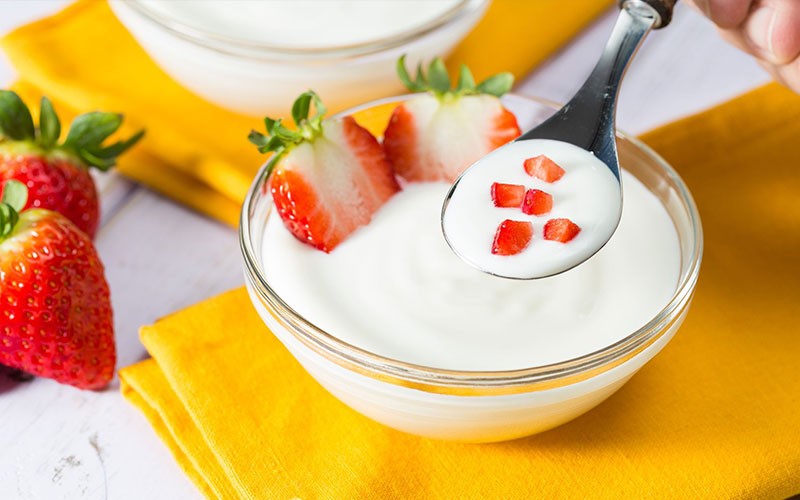
Yes, your favourite healthy alternative to ice cream is full of probiotics! It’s made from milk that has been fermented by friendly bacteria. Yoghurt is also a great source of protein, casein, whey, healthy fats, healthy carbohydrates, vitamins, and minerals.
The health benefits of yoghurt have been widely studied. It’s been known to improve digestion, treat antibiotic-associated diarrhea, reduce constipation and lessen the symptoms of irritable bowel syndrome.
Apple Cider Vinegar
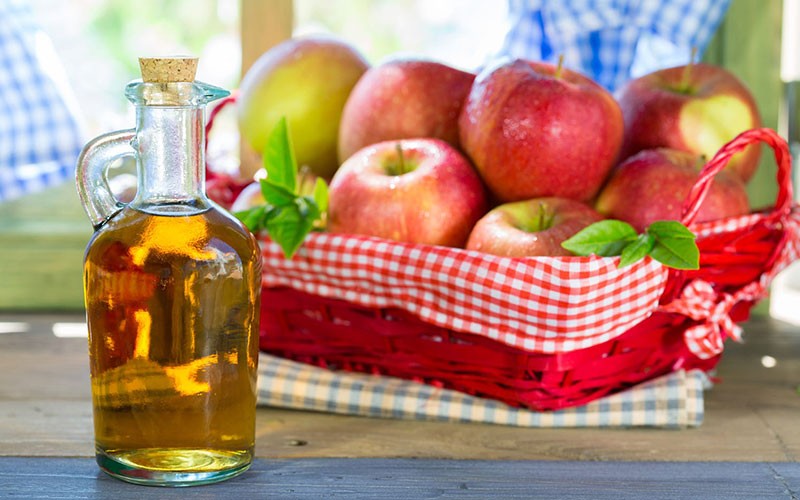
Plenty of health-conscious people always have a bottle of apple cider vinegar in their pantries. And that’s because this liquid has plenty of health benefits to offer the human body. It balances the body’s pH levels and stimulates cardiovascular stimulation, lymphatic drainage and bowel motility.
Apple cider vinegar also helps to treat acid reflux and heartburn, improves metabolism, soothes sunburn, regulates blood sugar levels, helps clear sinuses and helps cure colds and sore throats.
Kombucha
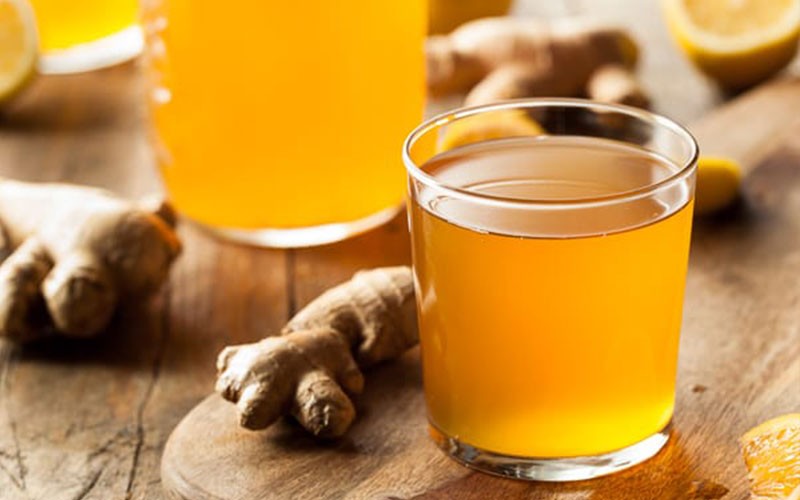
Kombucha is a fermented drink made with tea, sugar, bacteria and yeast. It’s made by adding a colony of bacteria and yeast to sugar and tea, then mixing them all up to ferment. It’s known as the “Immortal Health Elixir” and originated in the Far East around 2,000 years ago.
Drinking kombucha regularly helps to counteract liver cell toxicity, boosts energy, protects against cell damage, improves the immune system, helps repair and prevent joint damage and supports the production of collagen.
Kefir
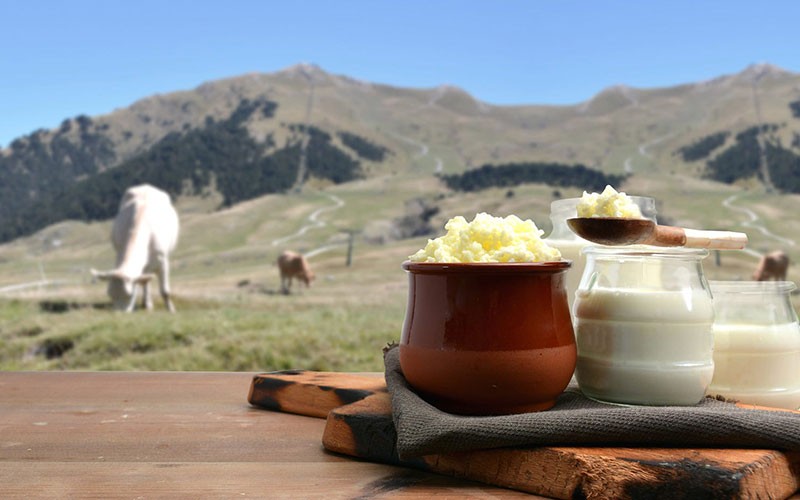
This is a fermented milk drink from the Caucasus Mountains made with kefir grains, which is a yeast/bacterial fermentation starter. Kefir has biotin and folate, which helps to boost the immune system. Its probiotic content also inhibits predatory bacteria growth.
Kefir is also known to help build bone strength, fight against Crohn’s Disease and Irritable Bowel Syndrome, help relieve allergies and also treat rashes, acne, eczema and psoriasis.
Kimchi

This favourite Korean side dish is quite healthy, did you know? It’s made from salted and fermented vegetables, usually napa cabbages and Korean radishes. It’s a very popular dish in Korea and is a staple in all their meals. Kimchi contains a high amount of fibre, calcium, selenium, iron, and vitamins A, B1, B2, and C. Of course, it also has probiotics, chlorophyll, flavonoids, carotenoids and capsaicin.
With all those components in kimchi, it’s no wonder it has plenty of benefits.
Firstly, it helps get rid of the waste and toxins found in the body, it cleans up the intestines, it stimulates better absorption of minerals, it stabilizes bowel movements and it helps prevent constipation.
Also, kimchi can help lower cholesterol levels and help with diabetes and treats gastric ulcers.
Tempeh
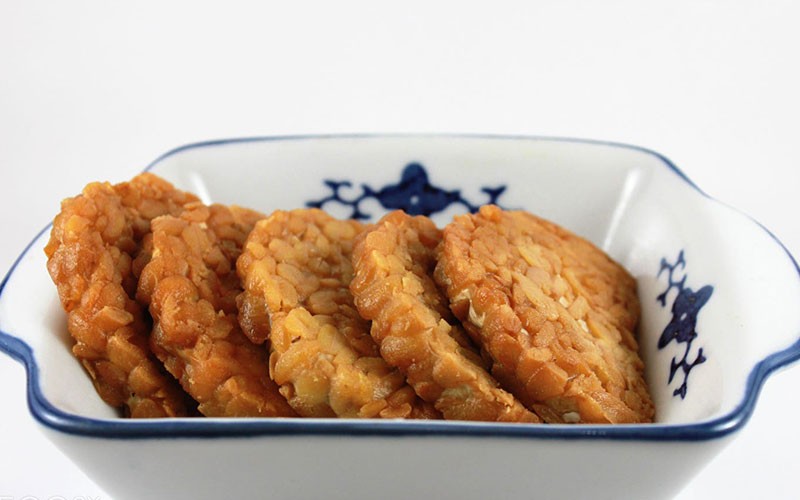
I’m sure this is one of the probiotic foods that not a lot of you have heard about. Tempeh is a fermented soybean product originating from Indonesia. It looks like a cake slice and can be found in most health food stores. Many people use it as a meat substitute.
So what can tempeh do for your health? There are plenty of ways. Tempeh significantly decreases serum total cholesterol and LDL cholesterol levels to improve lipid profiles.
Sauerkraut
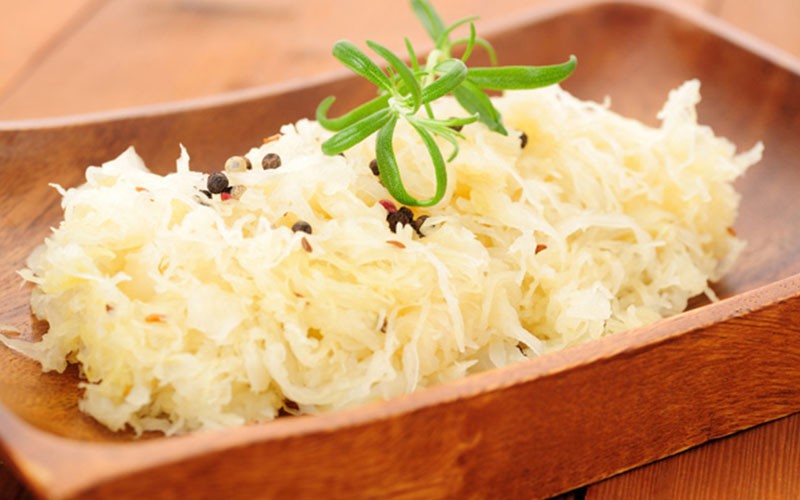
The last on our list of probiotic-rich food is sauerkraut. This is a fermented form of cabbage originating in Germany and popular throughout Central Europe.
Regular consumption of this fermented food can help with inflammation, boost the energy supply, improve blood circulation and help to provide you with healthy skin.
A note on probiotic consumption
Here’s a bit of caution before you start gorging on all these probiotic-rich foods.
First, make sure to consult with your doctor for the right amount of good bacteria you can ingest. If you eat more than 1 to 2 billion probiotic cells every day, chances are you’ll experience stomach discomfort and gas.
Also, those with artificial heart valves should watch out before eating probiotics because there is a risk of bacterial infections.
What are Probiotics and why do I need them?
The human body carries nearly 100 trillion bacteria in the gut, which is more than 10 times the total number of cells in the entire body.
Probiotics are those “good” bacteria that help keep the intestines healthy and assist in nutrient absorption. The benefits of Probiotics are multifaceted, however the more research that is conducted, the more the benefits are being understood.
Researchers are starting to discover the real importance of gut bacteria, including the influence on the immune system. The gut accounts for 25% of the immune cells in the body while providing 50% of the body’s actual immune response.
So how do Probiotics work?
Probiotics work to help maintain balance in the intestinal microbiota. By enhancing the intestinal flora, these microorganisms have a larger effect in terms of keeping people in good health.
Recent research on the microbiome has shown that its influence extends far beyond the gut, playing a crucial role in both our digestive and immune systems.
More recently, studies are showing the microbiomes' role in areas including brain health, memory and even mental health.
References:
- Health.com. Health Benefits of Probiotics. [online] Available at: Health Benefits of Probiotics.
- Axe, J. Probiotics: Top Benefits, Foods And Supplements. [online] Dr. Axe. Available at: Probiotics: Top Benefits, Foods And Supplements.
- Be Healthy Today. Probiotics And Their Body-Boosting Benefits. [online] Available at: Probiotics And Their Body-Boosting Benefits.
- WebMD. What Are Probiotics? Probiotic Supplements, Foods, Uses, Benefits, And Safety. [online] Available at: What Are Probiotics? Probiotic Supplements, Foods, Uses, Benefits, And Safety.
















































